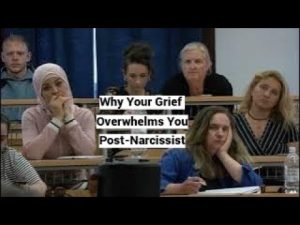- 1.1 1. Differentiating Types of Hoovering by a Narcissist
- 1.2 2. Characteristics of Narcissistic Grudges
- 1.3 3. Theoretical Basis: Grudge as a Relationship Management Tool
- 1.4 4. Narcissistic Functions of Holding a Grudge
- 1.5 5. Moral Injury and Retribution
- 1.6 6. Control and Manipulation via Grudges
- 1.7 7. The External Solution to Narcissistic Mortification
- 1.8 8. Splitting Mechanism and Narcissistic Victimhood
- 1.9 9. Summary: Why Narcissists Never Let Go of Grudges
Unforgiving Narcissist Hoovers to Revenge, Holds Grudges
1. Differentiating Types of Hoovering by a Narcissist
- Narcissist hovering can be motivated by true idealization or a grudge-driven punitive intent. True hovering is about reintegration, whereas grudge-driven hovering seeks punishment.
- Signs of grudge-driven hovering include repeated accusations of transgressions, lack of idealization, insistence on being right, moral superiority, need for confession or restitution, punitive behavior, and coercive control.
- The narcissist demands behavioral modification, submission, and guarantees against future offenses as part of holding a grudge.
- When these signs appear, the recommended response is no contact.
[timestamps: 00:00–10:30]
2. Characteristics of Narcissistic Grudges
- Narcissists hold grudges indefinitely, never forgiving or forgetting, due to their fragile and brittle selves.
- They redefine transgressions arbitrarily and inconsistently across time, preventing closure.
- This instability reflects the narcissist’s lack of a consistent self or identity, making forgiveness impossible.
[timestamps: 10:30–15:00]
3. Theoretical Basis: Grudge as a Relationship Management Tool
- A grudge is relational, used to communicate pain, expectations, and redefine relationship terms.
- It converts reality into a fantasy focused on victimhood, injustice, and retribution.
- The grudge can either end or perpetuate the relationship under new conditions.
[timestamps: 15:00–18:45]
4. Narcissistic Functions of Holding a Grudge
- Reconstitutes narcissistic grandiosity by combating narcissistic injury and mortification caused by perceived public shame or humiliation.
- Narcissists see themselves as omnipotent and infallible; losing or being outwitted challenges this self-view.
- The grudge restores their sense of omniscience and omnipotence, proving they “never lose” and are “always right.”
- It involves self-righteous indignation, strict moral standards, and an unforgiving perfectionism.
[timestamps: 18:45–27:00]
5. Moral Injury and Retribution
- Narcissists view offenses as irreparable moral injuries, making forgiveness impossible.
- They expect restitution, confessions, and visible remorse, but often reject these to maintain control and the dynamic of victimhood.
- The grudge evolves into punitive vengeance intended for self-vindication rather than genuine reconciliation.
[timestamps: 27:00–33:00]
6. Control and Manipulation via Grudges
- A grudge allows the narcissist to control the narrative and others in their “shared fantasy,” assigning rigid roles and maintaining dominance.
- The grudge serves as deterrence, modifying others’ behavior through fear of the narcissist’s vengeful reactions.
- Unlike typical grudges, a narcissist’s grudge lacks self-limiting expiration and focuses more on impression management, projecting strength by never forgiving.
[timestamps: 33:00–39:45]
7. The External Solution to Narcissistic Mortification
- Narcissistic mortification arises from public humiliation, triggering intense anxiety and personality disintegration risks.
- One coping mechanism is the “external solution” which involves blaming others and cultivating eternal grudges against perceived malicious conspirators.
- This externalized victimhood narrative justifies long-term grudges as proof of innocence and moral superiority.
[timestamps: 39:45–46:00]
8. Splitting Mechanism and Narcissistic Victimhood
- The narcissist divides the world into absolute good and evil, assigning themselves the role of the moral victim.
- They exaggerate the severity and disproportionality of offenses to maintain the narrative of victimhood and justify ongoing grudges.
- This splitting supports ongoing ruminations and obsessive focus on previous humiliations and injuries.
[timestamps: 46:00–50:00]
9. Summary: Why Narcissists Never Let Go of Grudges
- Grudges serve multiple key psychological functions for the narcissist: preserving grandiosity, seeking revenge, maintaining control, managing relationships, and sustaining victimhood narratives.
- The narcissist’s lack of consistent self-identity and moral rigidity make grudges permanent and necessary.
- Unlike ordinary people, narcissists never forgive or forget because grudges provide coherence and justification for their life story.
[timestamps: 50:00–54:30]
This summary captures the main ideas and psychological insights on narcissist grudges and behaviors related to hoovering discussed throughout the meeting.






